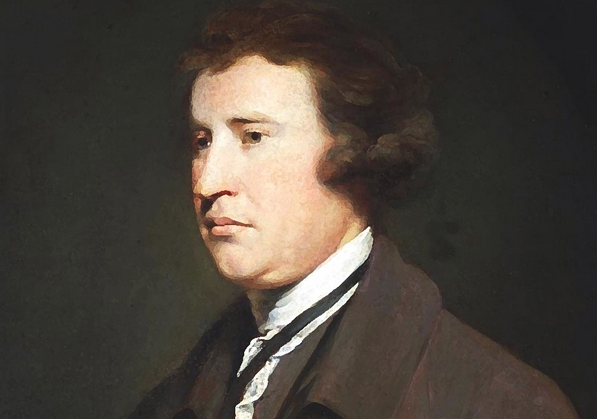
Liberalism and Empire: A Study in Nineteenth -Century British Liberal Thought. By Uday Singh Mehta. Chicago: University of Chicago Press, 1999. U$ 20.49 Paperback (amazon.com).
What was the liberal justification of the British Empire? How did liberal and progressive thinkers such as Bentham, both Mills, and Macaulay defend the undemocratic and nonrepresentative structures Great Britain created around the world? And why did Edmund Burke, the hero of Liberalism and Empire — generally thought of as a conservative — express such sustained reluctance towards the empire, and all the injustices, cruelty and exploitation it entailed?
These are the questions Uday Singh Metha seeks to answer in this fascinating and well-researched book on British liberal thought in the late 18th and 19th century.
The author’s main argument is that liberalism and empire do not contradict each other but are strongly related: In the context of the British Empire, Singh Mehta describes liberalism as doctrinaire in its certainties, universalist, aloof, unconcerned with grasping the unfamiliar, inattentive to what is and concerned, instead, with projecting what will and should be. While the book does not suggest that liberalism must be imperalistic, it points out that the urge is internal to it.
Following 1818, when the British suppressed the Marathas, the last serious threat they faced in India, and the ascendancy of the Whigs in the 1830s, liberal thought assumed a paternal posture – an odd mix of maturity, familial concern, and an underlying awareness of the capacity to direct, and of need be, coerce. Liberal writers frequently use the metaphor of childhood and the view of Indian religiosity in terms of the category of superstition. India, John Stuart Mill often argued, was a ‘backward society’ in need of tutelage. The book thus elegantly shows how liberal thought at the time was fundamentally shaped by the unequal relationship between itself and the rest of the world. It is particularly here that the contrast to the traditional liberalism’s benign indifference towards the private and collective identities of peoples is striking.

Edmund Burke
In the same way, the universality of freedom associated to liberalism did not correspond to the sustained political exclusion of various groups and “types” of people. Such contradictions, of course, did not escape most observers. Sir Henry Maine, for example, wrote at the time that “the paradoxical position must be accepted in the extraordinary experiment, the British Government of India, the virtually despotic government of a dependency by a free people.”
While one may argue that liberal writers at the time merely misappropriated an otherwise benign school of thought, the author goes further and argues that liberalism itself has an “exclusionary basis” (as Locke wrote, “political inclusion is contingent upon a qualified capacity to reason”). In addition, given the constitutive nature of the impulse to better the world, there is a constant tension with other liberal notions such as tolerance.
While this is true, some readers will disagree with the author’s rather sweeping statements against the theory in general. After all, not only liberals embraced imperialism. Marx believed foreign intervention in what he called backward societies such as China and India was necessary for them to change. He asserted
Indian society has no history at all, at least no known history. What we call its history, is but the history of the successive intruders who founded their empires on the passive basis of that unresisting and unchanging society. The question, therefore, is not whether the English had a right to conquer India, but whether we are to prefer India conquered by the backward Turk, by the backward Persian, by the Russian, to India conquered by the Briton. (…) England has to fulfill a double mission in India: one destructive, the other one regenerating – the annihilation of old Asiatic society, and the laying of the foundations of Western society in Asia.
In addition, liberal ideas led to a rights revolution in many countries the late 18th, 19th and 20th century, which was unique in human history. Independence movements in India were fundamentally affected by Wilson’s liberal rhetoric of self-determination. Applying Singh Mehta’s logic, all processes of democratization during the 19th century were flawed, since large groups were not yet allowed to vote. He may be correct to argue that “the facts of political exclusion – of colonial peoples,of slaves, of women, of those without sufficient property to exercise suffrage (…) over the past three and a half centuries must be allowed to embarrass the universalistic claims of liberalism.” And yet, one can similarly argue that, while liberalism certainly contains dangerous elements, liberal reforms over the past centuries represented progress, particularly when compared to the times prior to the first steps of democratization, beginning with the Glorious Revolution in 1688. While Mehta’s charge of liberalism’s historical connivance with colonialism is correct, it is debatable in how far liberalism was the main culprit of its existence throughout the 19th century.
Yet several of Singh Mehta’s critical remarks on liberal thought reflect today’s most frequent criticisms of modern liberal internationalist writers. For example, it is striking to see how (mostly US-based) proponents of liberal projects such as the “League of Democracies” are often highly unaware of why democracies in the Global South – such as Brazil and India – are so reluctant to support such ideas. Considering that today’s international political debate is strongly influenced by liberal internationalist elements – such as in the context of the responsibility to protect – this book deserves, irrespective of whether one agrees or not, a wide readership among political scientists, historians and policy makers – particularly those who think of themselves as liberals.
Read also:
Book review: “The Magna Carta through the ages” by Ralph V. Turner
Book review: “Non-Western International Relations Theory” by Amitav Acharya and Barry Buzan (eds.)








